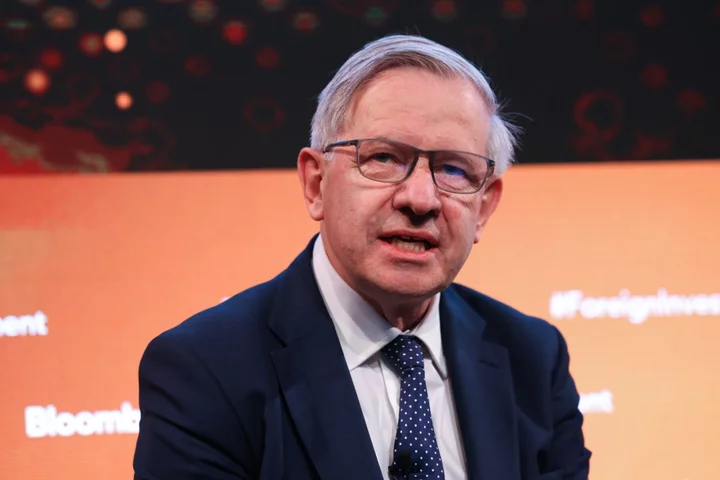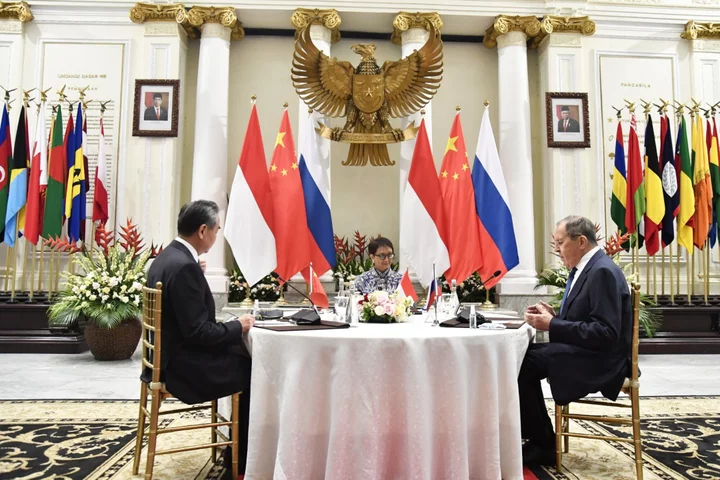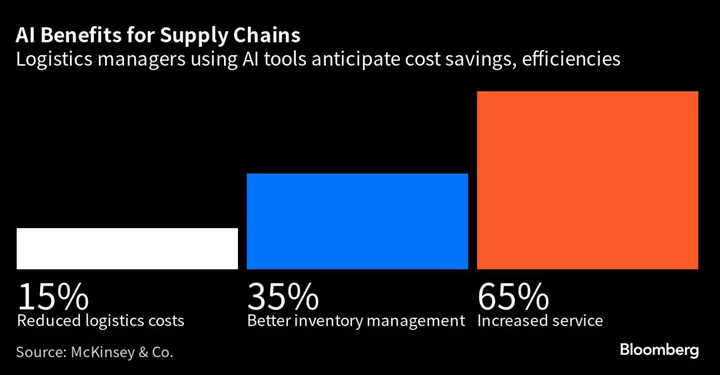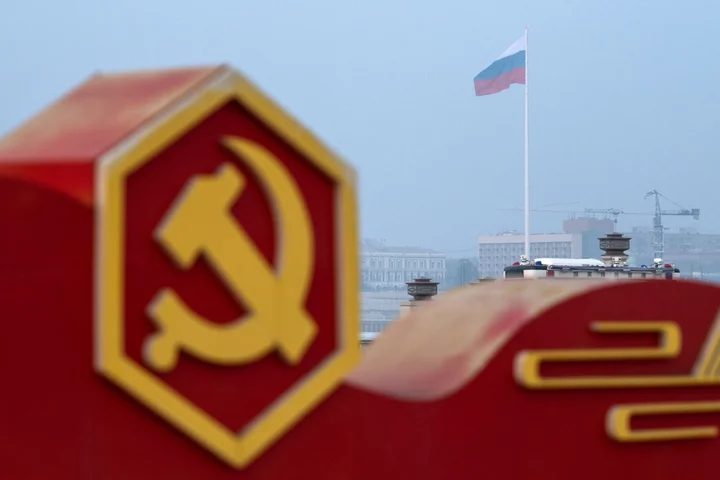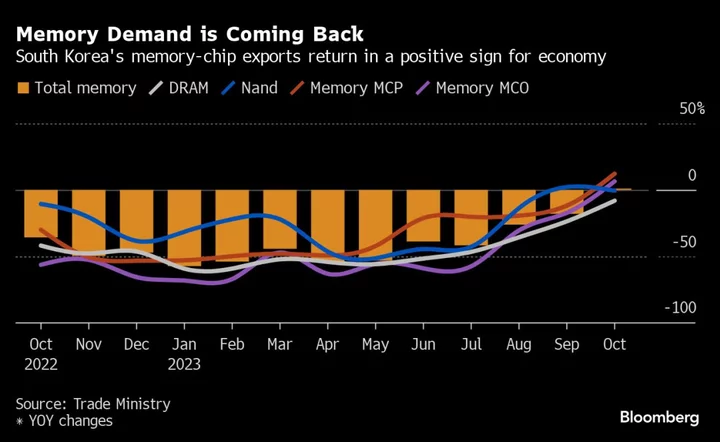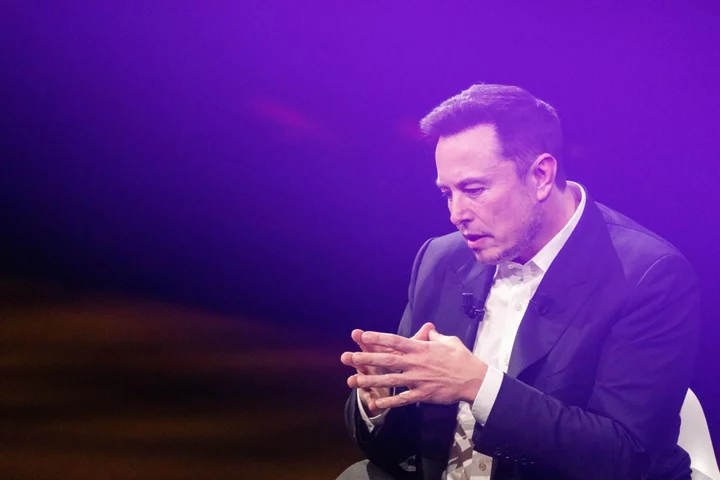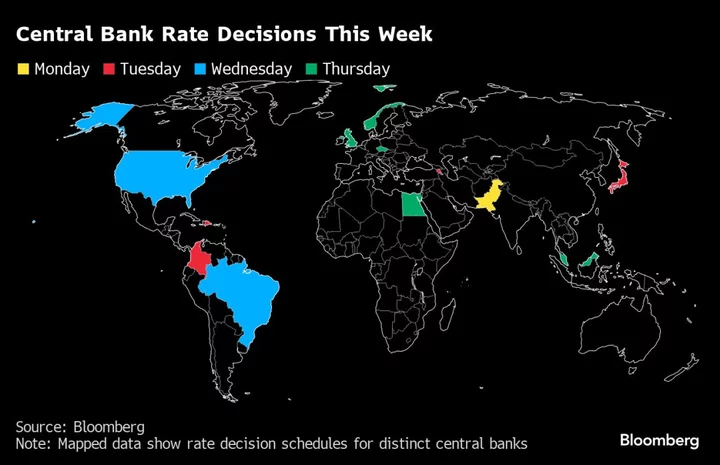HSBC Holdings Plc’s head of public affairs criticized the US for strong-arming the UK into cutting back business dealings with China and accused the British government of being “weak” for going along with it.
Sherard Cowper-Coles told attendants at a closed-door event in London in June that the UK would often bow to the demands of Washington and shouldn’t blindly follow the US but look after its own interests, according to several people familiar with the matter, who asked not to be identified because the event was private.
Attendees were taken aback by his candor, some of the people said, and adding that in some moments it was uncomfortable to listen to his views even if Cowper-Coles had made similar points before. He is also chairman of the China-Britain Business Council lobby.
Cowper-Coles said in a statement to Bloomberg News that his “personal comments” don’t reflect the views of HSBC or the CBBC.
“I apologize for any offence caused,” said Cowper-Coles, who is also a former British ambassador with stints in Saudi Arabia, Israel and Afghanistan. HSBC reiterated in a statement the comments were his personal views.
The political tussles have been a growing source of tension for the UK and other European countries of how to navigate the rapid deterioration of US-China ties. After decades of pursuing trade with Beijing, trying to dial that back comes at a cost for businesses.
The US has restricted China’s access to advanced technologies such as high-end semiconductors that could be used for military purposes and blacklisted some of its companies on security grounds. Beijing responded with some of its own restrictions.
Balancing such security concerns without losing access to China’s massive market has created friction with the private sector and US allies that fear getting caught in the crosshairs. HSBC must pull off a particularly delicate balancing act. The lender makes much of its money in China but at the same time it is London-listed and access to the US financial system is critical to its appeal.
Cowper-Coles gave attendants one example of UK caving to Washington’s wishes. It was back in 2020 when the UK decided to ban Chinese telecoms giant Huawei Technologies Co. Ltd. from taking part in building its 5G cellular network, reversing previous assessments.
Cowper-Coles oversees the public policy of Europe’s largest bank and government relationships around the world, advising Chairman Mark Tucker and senior executives.
His comments lay bare the frustration and exasperation felt by business, one that is rarely made public, given the risk of blowback.
HSBC previously came under attack in China over its cooperation in a US probe into Huawei. But when it expressed public support for a security law imposed in Hong Kong, its biggest market, that drew criticism from local activists and western politicians.
The US has targeted Huawei on concerns its equipment may be used to spy for the Chinese government, an allegation the company refutes. Washington and several allies have banned the use of Huawei’s network equipment on national security grounds, and the US Commerce Department also severely curbed the ability of American firms to sell technology to it since 2019.
Cowper-Coles said the US demanded the UK adopts similar policies to Washington’s export controls for China, according to the people at the June event.
His remarks came after a visit to China where he met senior government officials in his capacity as CBBC chairman, according to its website. He told the event that HSBC’s relations with China were on a solid footing, the people said.
Cowper-Coles had previously called for better relations between China and the UK. In February 2021, he said to an audience which included lawmakers that the UK has to engage on its own terms, and in its own interests.
“The American financial services industry is absolutely cleaning up in China, while we’re struggling to get an economic and financial dialog arranged,” he said.
He appeared earlier this year on a Chinese broadcaster, the state-backed CGTN, where he said western politicians are looking to “demonize China” while businesses understand the “complexity” of doing business in the country.
Author: Ambereen Choudhury, Alberto Nardelli and Harry Wilson

